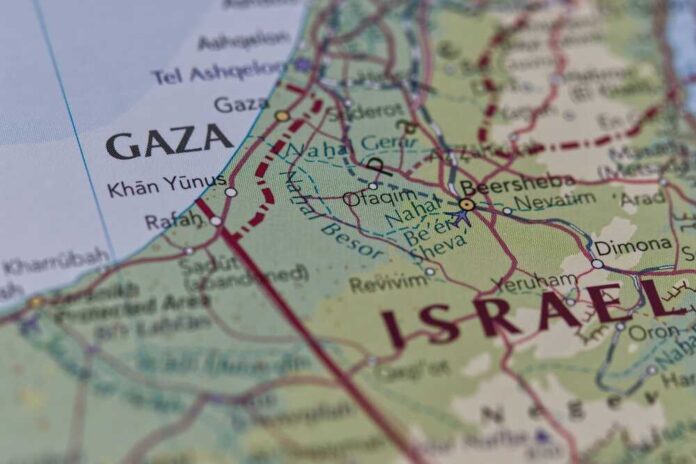A senior member of the Yemeni Houthi organization has boldly stated that their ongoing activities in the Red Sea will eventually impact the U.S., and they see a connection between these activities and the conflict between Israel and Hamas.
This statement highlights the Houthi’s intention to target global commercial shipping and their apparent disregard for the well-being of the Palestinian people who suffer under Hamas in Gaza.
On Monday, a concerning response was received in the aftermath of the targeted airstrikes carried out by the administration of President Joe Biden and the government of the United Kingdom against Houthi assets in Yemen. This response raises fear about the potential impact on America. Biden has acknowledged the ongoing attacks in the Red Sea, and despite the repeated airstrikes, it has failed to deter the Houthis.
Following the initial American and British retaliation strikes, the Houthis announced that Yemenis viewed ships from those countries as legitimate targets. They highlighted their commitment to protecting their homeland and nation and their unwavering support for Palestine. The Houthi’s self-proclaimed “national salvation government,” which is widely regarded as an illegitimate political entity in Sana’a, issued a statement affirming their intention to persist with their assaults on ships in the region despite the ongoing airstrikes.
According to a spokesperson from the Houthi foreign ministry, the United States is seen as a significant risk to shipping in the Red Sea and has been identified as the first party to militarize the region. In 2014, the Houthis, a Shiite group, gained control of Sana’a, the capital of Yemen. With support from Iran, they recently declared war on Israel in October, showing their support for Hamas. On October 7, a devastating incident occurred in Israel, with individuals committing violent acts that led to the loss of many lives, multiple abductions, and shocking acts of violence.
After the war declaration, the Houthis began exploiting Yemen’s strategic location on the Bab el-Mandeb Strait, which provides access to the Red Sea, to target commercial shipping vessels. Major shipping companies have chosen to reroute their ships along the longer and costlier path around the Cape of Good Hope in South Africa.
In January, Houthi leaders publicly stated that ships flying the Chinese or Russian flag and sailing near the Red Sea were not seen as a threat to their movement. In late January, the United Nations reported a notable 45 percent decline in freight volume through the Suez Canal over two months.














